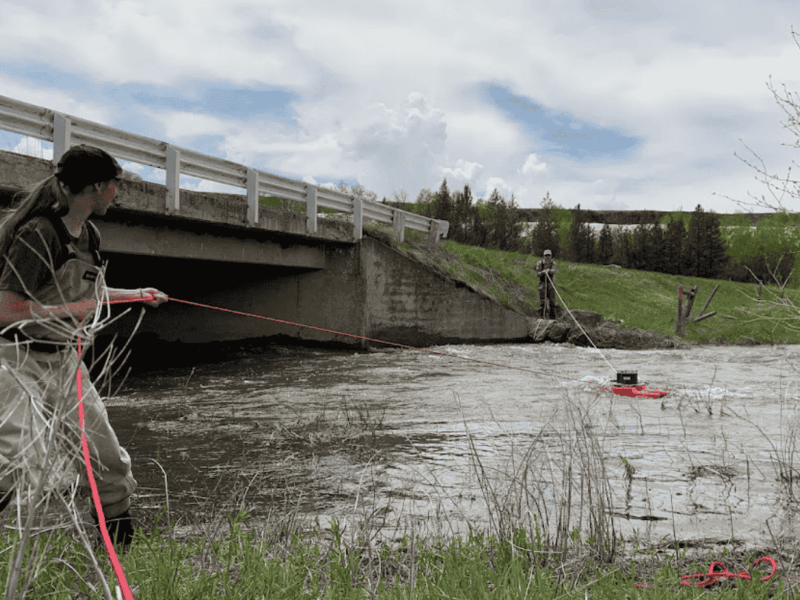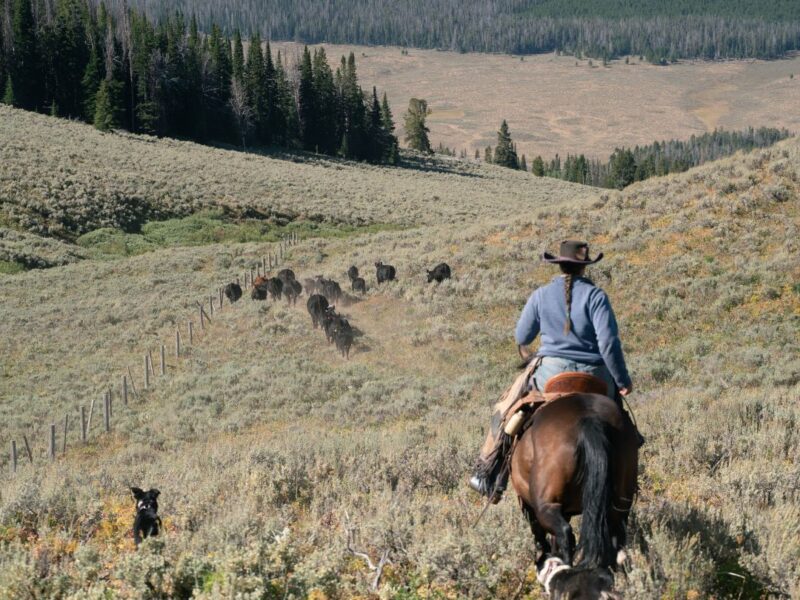Is an ounce of prevention worth a pound of cure?
Wolves are highly intelligent, opportunistic and adaptable creatures capable of rapid learning. Developing a taste for livestock is just one of their behaviors that can lead to negative consequences for producers, livestock and wolves alike. When there is plentiful game, these canids will often stick to elk, deer or other wild food sources, but research shows that when they receive a food reward from a new source, they are far more likely to continue to return to investigate that source.
Rebecca Much and colleagues observed captive wolves in a controlled experiment where two groups of wolves, one conditioned to a food reward from a feeding canister and another non-conditioned group that received no reward, were observed. The study found that conditioned wolves were 11 times faster in investigating the food source than non-conditioned wolves, and demonstrated increased exploration, reduced fear and far more persistent work behaviors to get any morsel left inside. While a lab setting is no ranch, this experiment does hold some lessons for reducing wolf-livestock conflicts out on the range. After all, wolves’ biology is a constant.
Wolves are quick learners, so managing your ranch to prevent wolves from picking up bad behaviors may just offer that pound of cure.
– Matthew Collins
Within a rangeland context, attractants such as carcass pits or afterbirth during calving may provide a food reward. What is likely to follow that food reward? Most likely increased investigation and decreased fear, a slippery slope to depredations.
The study goes on to recommend that conflict prevention practices such as carcass removal programs or turbo-fladry around calving pastures can help secure attractants and may reduce the potential for food rewards, learning and increasing boldness of wolves that may cause conflicts.
Wolves are quick learners, so managing your ranch to prevent wolves from picking up bad behaviors may just offer that pound of cure.
“An ounce of prevention: Quantifying the effects of non-lethal tools on wolf behavior.” Rebecca Much, et al. Applied Animal Behavior Science. To read the research, click here.
Research Roundup highlights new research important to the practice and policies of land stewardship in the West. Each summary is in the words of expert staff of the Western Landowners Alliance and not those of the study’s authors.





